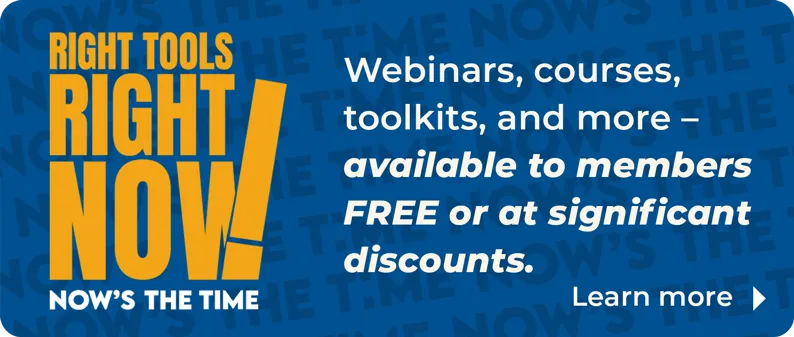A short, simple, and seemingly innocent request comes through in your email: “I’d like to pick your brain about property investing. Maybe we can meet up for coffee sometime?” You do like coffee. And you enjoy talking about real estate investing. How could you say no?
So you agree to meet.
But after the meeting, you don’t feel better for having spent time discussing the finer points of real estate investing — in fact, you feel like your hard-earned experience is underappreciated. You’re left feeling drained and overspent, as though you’ve just given away your secrets in exchange for a $5.95 Starbucks latte.
If this sounds like you, you’re not alone. Most professionals reach a point where they start receiving frequent requests to meet for coffee and brain-picking sessions. For many real estate advisers and property professionals, the number of solicitations they receive may very well correlate with the amount of free, online content that they produce. If you’re an especially prolific writer or podcaster, chances are you will receive many such emails or cold calls per week. People feel that since you share your thoughts online for free, that you’ll certainly be willing to divulge your secrets in person in exchange for a hot drink.
But if you’re anything like most of us, you’re busy. Very busy. And taking the time out of your already packed schedule to provide free consultation services can be costly, both mentally and from a pure time-management point of view.
If you’re feeling overwhelmed with requests from brain-pickers, here’s how you can turn them down while tactfully saying “yes” to the offers that you genuinely want to accept.
Ring, Ring!
First, let’s slash some misconceptions surrounding brain-picking sessions.
There’s a good chance that part of you feels like you can’t say no. “I’m in demand,” you think, and besides, “some of those sessions may eventually pay out down the road,” right? Who knows, you may even get some genuine business out of the deal with referrals, and you certainly don’t want to be known as someone who turns down offers to meet up.
For broker-owners, successful agents, and real estate investors alike, you know that networking is invaluable. But the fact is that by and large most of these “brain-pickers,” whether through naivete or willful ignorance, are grossly undervaluing your experience.
Think about it with me for a minute. If these people really valued your services, they wouldn’t be asking for you to provide them with consultation services and expecting you to give them your secrets to success for the price of a hot beverage or lunch. They’re not saying it directly, but their actions imply that they feel that your experience and knowledge on the subject is worth less than $20 at best.
Is this something that you want to take part in?
As best-selling author Jack Canfield says, “People treat us the way we teach them to treat us.” Don’t teach people that your time is worthless.
Offer an Alternative
When someone sends you a request to meet up, what they’re really asking for is advice. In most cases, though, there are a number of other ways that they could find the answers to their questions on their own — as long as they’re motivated and willing to research. So don’t feel like you have to do their heavy lifting for them. Instead, consider taking the time to politely point them in the right direction, encouraging them to do some of the legwork on their own.
Your goal is to help even as you indicate that your time is valuable.
The next time you get a request to meet up that you can’t or would rather not take part in, consider responding with one of the following alternative suggestions.
- Recommend a Great Book or Two
Having the titles of a few great books that you’ve personally found to be helpful can be an excellent way to point people in the right direction. Incidentally, at Renters Warehouse, we have an entire list of books that we recommend to those who are interested in getting started with income properties.
- Forward Them Links to Articles That You’ve Written or Read
Consider referring them to your free resources. If you have published articles, podcast episodes, or videos that you feel could help to guide them in the right direction, then consider doing so. For especially persistent brain-pickers, consider including a brief explanation that these resources are the only types of free advice that you offer — anything that involves a meetup has a cost.
- Inform Them That You Will Be Speaking at an Event
If you’ve reached a point in your career where you’re speaking at events, consider replying with a short note detailing that you’re going to be speaking at an upcoming event, informing them that they’re welcome to come and see you.
- Invite Them to Email You Their Questions
If the request is one that’s especially piqued your interest, consider having them create a brief draft outlining their questions and email it to you. The great thing about this type of response is that it will help you to weed through time-wasters who aren’t interested in investing anything themselves. Most people won’t be willing to go through the trouble of writing up a draft and sending it to you, and if they do go through with it, you can know that they’re serious and more than willing to do their own hard work.
Finally, if part of your business is consulting, then make sure you follow your response with a short sentence, emphasizing that you charge for these types of meetings. Something like, “If you’re still interested in a consultation, I’m available at ____ rate,” will get the message across.
These types of responses offer two great benefits. First, they give you a polite way to direct inquirers on toward helpful and free resources, and secondly, at the same time they allow you to firmly establish your time as valuable.
Meet on Your Terms
For some of us, we enjoy meeting up once or twice a month to share our experience with others. After all, helping others who are genuinely interested in learning (and not just looking to score some free tips) can make us feel good. And, let’s face it, it’s great to give back.
If this sounds like you, consider setting aside a specific amount of time each week to do this. Allocating, say, 30 minutes per week to do this for people allows you to say “yes” to those requests that you want to say yes to, while at the same time helping you to weed out the requests that you aren’t interested in.
Before you agree to meet with anyone, just make sure it’s something that you want to do. Don’t feel pressured into it because they’re an old friend from school or extremely persistent.
Don’t spread yourself too thin or do something that involves a significant sacrifice. Do you feel right about the meetup, or does the thought of one more thing this week cause you to feel stressed and anxious? Are you spending enough time with your family? Are you getting enough downtime? Or do you have too much on your plate already?
Remember, it’s not wrong to say no. You don’t owe anyone this, and you don’t have to create excuses. A simple “Sorry, my schedule’s full” or “I’m not doing coffee meetups at the moment” is adequate.
Set a Time Limit
In order to get the most out of the meetup sessions that you decide to say yes to, make sure you set some ground rules first.
It’s on your time, so don’t feel bad about putting a limit on it. Tell your contact that you can give them, say, 30 minutes. You may also want to consider meeting over the phone instead of over coffee. No matter which option you choose, make sure you stick to your time limit.
As the clock approaches 30 minutes, draw the conversation to a close. Say, “I’ve enjoyed meeting up with you; we have time for one more question.” Then, wrap the conversation up — inform them that you have to get back to the office, and then leave.
Helping others will also help you. Meeting up with others will give you a chance to solicit some great questions that you can use for future material or blog posts. And they may also help you to get some referrals or give you a chance to recommend a colleague. Networking, when done on your own terms, can be a great thing. Just make sure you’re not devaluing your expertise in the process.
Finally, as author Kevin Kruse puts it so well, “Every ‘yes’ is a ‘no’ to something else.” Make sure you’re saying yes to meetups on your own terms, and choose your opportunities discerningly. Most people will understand if you say you’re busy. And if they don’t, try not to worry about it too much; they’re probably the type of individuals that you wouldn’t want to do business with anyway.
Maintain your reputation, meet up when you want to, but don’t let word get out that you’re easy to solicit free advice from. Respect your time, and others will too.










